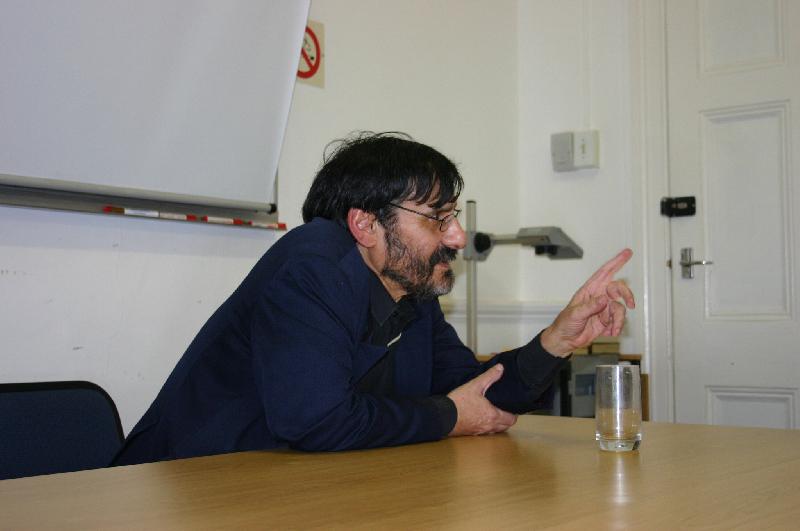
Dr Steven Friedman, Director of the Centre for the Study of Democracy at Rhodes and the University of Johannesburg, discussed his paper entitled Democracy as an Open-Ended Utopia: Reviving a Sense of Uncoerced Political Possibility at a Politics & International Studies Seminar last week.
In a country where we have fought for a democracy it is clear that the meaning of “democracy” – an equal opportunity for all citizens to participate in all decisions – has not been achieved. Though South Africans live in a “democratic state”, we don’t have an equal opportunity to have a say in the decisions being made on a political level. But this is not true in South Africa only – there is no democracy in which all have an equal right to participate and never will be. But we and other societies can move closer to this goal.
“We live in a world that is in desperate need of an alternative,” he argued. His paper says, therefore, that we need to aspire to a realistic alternative to what exists now. We can do this by aiming for a Utopia – an ideal society – while realising that we will never achieve this. If we aim for an ideal, we will be inspired to continue to make progress, to keep changing and more importantly, keep progressing in the right direction.
Dr Friedman also speaks to human conditions, “We have to stop imposing social order on others. Shack dwellers should have the same say as everyone else.” But his burning question is: why are these people living in shacks in the first place?”
He continued to argue that traditional utopian thought has been closed and has assumed that politics, in the sense of popular debate and contestation, should be replaced with enlightened administration by a small elite. There will never be a society in which there are no differences or disagreement, nor would such a society be worth fighting for. We should aim, rather, for a society in which we can discuss our differences on equal terms.
Dr Friedman proposes a reactivation of the "radical, emancipatory, core in traditional democratic principles" that rejects the illusion that progressive governance will be able to dispense with social and political antagonism. Friedman argued that, “A true democracy has never been achieved and will never be achieved”.
In conclusion Dr Friendman said, “A Utopia inspires a non-dominating way. Since liberal democracy is in a crisis, aiming for a Utopia allows us to say that we don’t have to live this way. We don’t have to abolish what we have - as a starting point we need to build on what exists to make it better.
The floor was opened to questions from the audience where the common concern was the fact that it is not ideal to aim for something you know you may never achieve. However, it may be more positive than achieving something that doesn’t produce the results hoped for. If people realise that a much better life is possible, they will work for it even if they know it will not be perfect.
Dr Friedman is a columnist for Business Day and a widely quoted public intellectual and activist. He is the author of the classic South African text Building Tomorrow Today.
